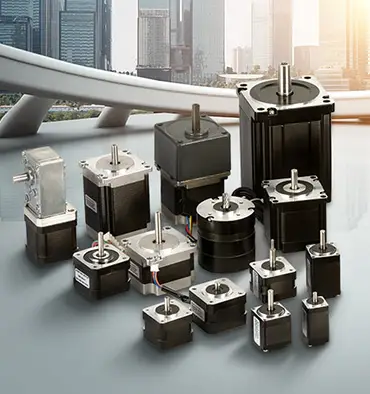What are the pros and cons of using a stepper motor?
Stepper motors are commonly used in a variety of applications that require precise control of movement. In this article, we will discuss the advantages and disadvantages of using stepper motors to help you have a better understanding of stepper motors.
Advantages of using stepper motors:
- Precise control: Stepper motors can be moved in precise increments for precise positioning and control.
- Open loop control: Stepper motors can be controlled in an open loop system with precise control of the position and speed of the motor without feedback, making their control in many applications simple and cost-effective.
- Low cost: stepper motors are usually cheaper than other types of motors, such as DC motors and servo motors. This makes stepper motors an attractive choice for applications where many costs are important.
- Low Speed High Torque: Stepper motors have high torque at low speeds and are ideal for applications requiring high torque, such as robots, automation and CNC machines.
- Low power consumption: Stepper motors consume less power than other types of motors.
Disadvantages of using a stepper motor:
- Limited speed range: The speed of stepper motors is limited by the output power of the drive compared to other types of motors, so they are not suitable for high-speed applications.
- Vibration and noise: Stepper generators produce vibration and noise, especially when running at high speeds, not suitable for applications requiring a muted environment.
- Complex control: stepper motors are harder to control than other types of motors, especially in closed-loop systems. This may require additional software and hardware to ensure accurate positioning and control.
- Leakage: Stepper motors can lose pace when overloaded or running at high speeds, resulting in inaccurate positioning and control.
Conclusion
Stepper motors are precise, cost-effective, and low in power consumption, making them ideal for many applications. However, they are also inadequate in terms of speed, sound, and control.


Leave a Reply